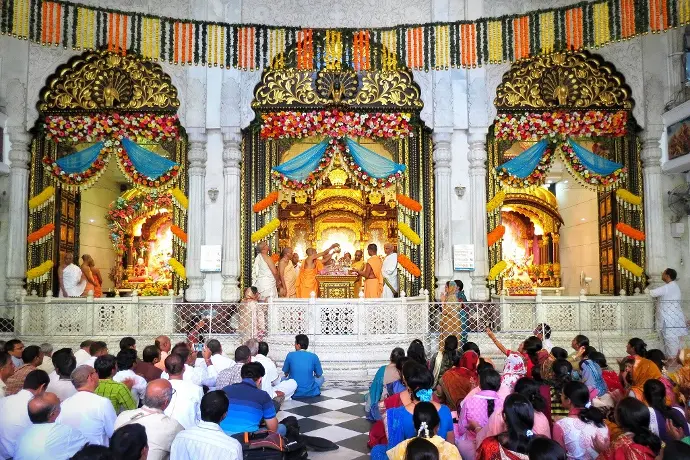The International Society for Krishna Consciousness (ISKCON), also known as the Hare Krishna movement, has millions of followers worldwide. Known for its teachings based on the Bhagavad Gita and the promotion of devotional service, ISKCON has established itself as a prominent religious organization. However, it has not been without controversy. From internal scandals to external allegations, ISKCON has faced criticism that continues to spark debate among spiritual seekers and skeptics alike.
1. A Brief Background on ISKCON
Founded in 1966 by A.C. Bhaktivedanta Swami Prabhupada, ISKCON quickly grew into a global movement. Its followers are known for chanting, distributing spiritual literature, and promoting vegetarianism and Krishna consciousness.
However, rapid expansion and decentralized management also led to inconsistencies in leadership and governance, which became evident in the years that followed.
2. Major Allegations and Legal Cases
a. Child Abuse Allegations in the 1970s–1980s
One of the most serious controversies involved abuse at ISKCON’s gurukuls (boarding schools) in the U.S. and India. In 1998, ISKCON filed for bankruptcy in response to a $400 million lawsuit filed by 95 former students who alleged physical and sexual abuse (Source: LA Times).
b. Financial Mismanagement
ISKCON has also faced criticism for alleged misuse of donations. Some ex-devotees and watchdog groups have claimed that temple funds are not always transparently used, though concrete evidence varies by region.
c. Cult Allegations
Some critics label ISKCON as a cult due to its strong emphasis on obedience to gurus and communal living. While many followers find deep spiritual meaning, ex-members have described psychological pressure and isolation from non-members.
3. Is ISKCON a Scam?
It would be unfair to label ISKCON as a “scam” without legal backing. While it’s true that several leaders have been convicted or accused of misconduct, ISKCON as an organization has also taken steps to improve. This includes:
- Setting up the ISKCON Child Protection Office
- Implementing financial audits and training
- Encouraging external legal compliance
Still, the shadow of past actions continues to affect its public image.
4. What Followers Say
Despite the criticism, many followers defend ISKCON as a genuine path of spiritual growth. The organization’s teachings, festivals, and community outreach (like free food distribution through ISKCON Food Relief Foundation) have touched many lives.
5. Things to Consider Before Joining
If you’re considering joining or donating to ISKCON:
- Visit multiple temples and speak with current and former devotees.
- Research local leadership and their history.
- Check for financial transparency and community feedback.
- Know your legal rights and spiritual boundaries.
Conclusion
ISKCON, like many global spiritual movements, has had its share of praise and scandal. Whether you view it as a legitimate path to God or a troubled institution, the facts and voices surrounding it deserve open discussion. It’s important to approach such topics with nuance, research, and respect for individual experience.
